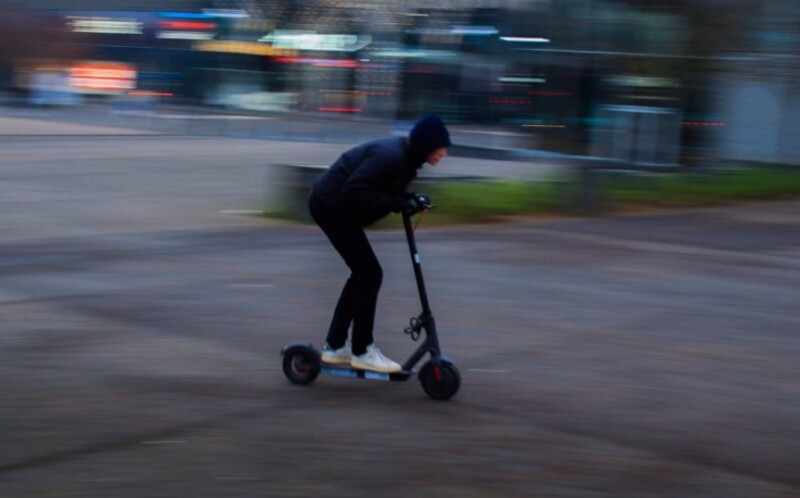A recent comment by one of the most influential voices of the uncrewed aviation industry made me wonder about the big differences between regulation and enforcement of novel modes of transportation, some in the air and some on the ground.
In recent years, in parallel with the birth of our industry, another new and exciting mode of transportation has also arrived on the scene: electric skateboards, which now have a small handlebar and can be driven at high speeds.
Well, it turns out that they are more dangerous than people imagine and yet they are not regulated nor are they monitored with the magnifying glass that is used for drones.
Rafa Ocon, a YouTube influencer with over 160,000 followers in that platform recently shared his experience in Spain in which he said there is one death a month because of electric scooters. The statistics from the rest of the world are even more alarming.
According to the US Consumer Product Safety Commission (CPSC), there were at least 233 deaths associated with electric scooters, electric bicycles, and so-called “hoverboards” between 2017 and 2022. However, the CPSC acknowledges that death reports are incomplete. For example, a 2024 report from the UK organization PACTS (Parliamentary Advisers for Transport Safety) found that less than 10% of electric scooter victims are recorded in official data. In South Florida, the Broward Medical Examiner's Office has recorded 49 deaths related to scooter accidents since 2019, but only three of those deaths specifically mentioned an electric scooter.
In the United Kingdom, a similar number of deaths have occurred in that country, one in 2019, three in 2020, thirteen in 2021, fourteen in 2022, six in 2023 and four in 2024 (as of early July). The youngest person who died was a 12-year-old driver, the oldest driver was 74. Electric rental scooters have been involved in four incidents where someone died, one involving a 75-year-old man moving a rented vehicle which was parked. According to PACTS, nineteen motorcyclists died in vehicle-scooter collisions and one pedestrian died after being hit by someone driving an electric scooter.
Given all these statistics, it would be worth asking ourselves, how many people have died because of drones?
None! The response is overwhelming, and the only deaths attributable to drones are war victims in attacks with military drones, not civilians.
Here in my own gated community in South Florida in the US, children of all ages ride these electric scooters along the sidewalks and even down the street at high speeds without helmets or adult supervision.
It's true that drones have the potential to cause accidents with manned aircraft, but the chances of downing a commercial airline jet with a 250-gram drone are less than slim. Are we considering the possibility that an electric scooter driven by an unexperienced child might cause an accident involving a school bus with incomprehensible consequences?
The question then is, could it be that newspaper headlines are stronger and attract more attention when it comes to airplanes and air accidents than when it comes to cars and road accidents?
It is difficult to understand how the civil aviation authorities, such as the Federal Aviation Agency (FAA) in the US, EASA in Europe, and all the others at the national level around the world, fear a possible air disaster, but their land transport equivalents do not have the slightest concern about the potential for deaths and injuries that are occurring and which are not a prediction, but a reality.
Whatever the cause of this unusual dichotomy in the regulation and supervision of drones and electric scooters, one thing is certain, drones come to play a very important role in the development of new and more environmentally acceptable modes of transportation, such as package delivery, public safety and many other applications, while these scooters are simply another way to have fun over short distances.
Federal aviation agencies worldwide would do well to relax a little the strict measures against uncrewed aviation, which will help this new industry to fly more and collect valuable data that would be instrumental in the safe and efficient integration of these two modes of aviation.
If you’re interested in learning more about these advances at Commercial UAV Expo 2024, use this link register or see the entire conference program conference here.















Comments